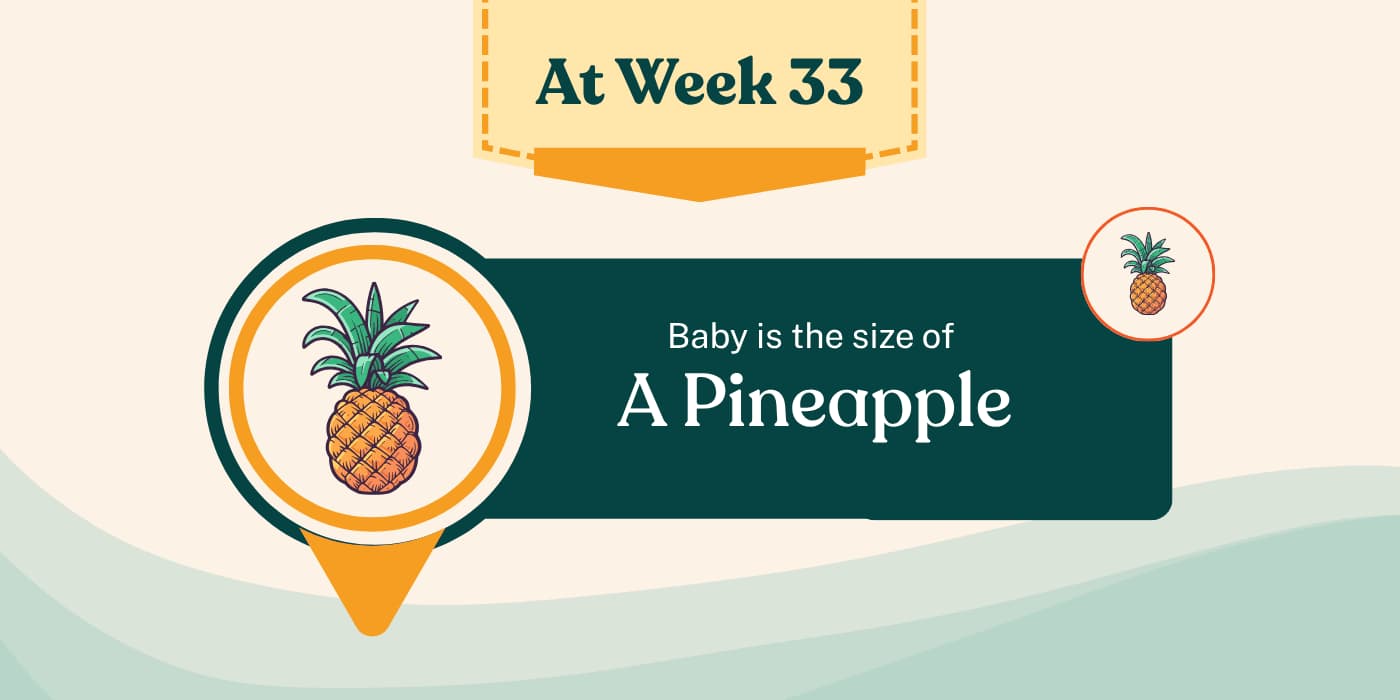Your Pregnancy at Week 33
Science photo library
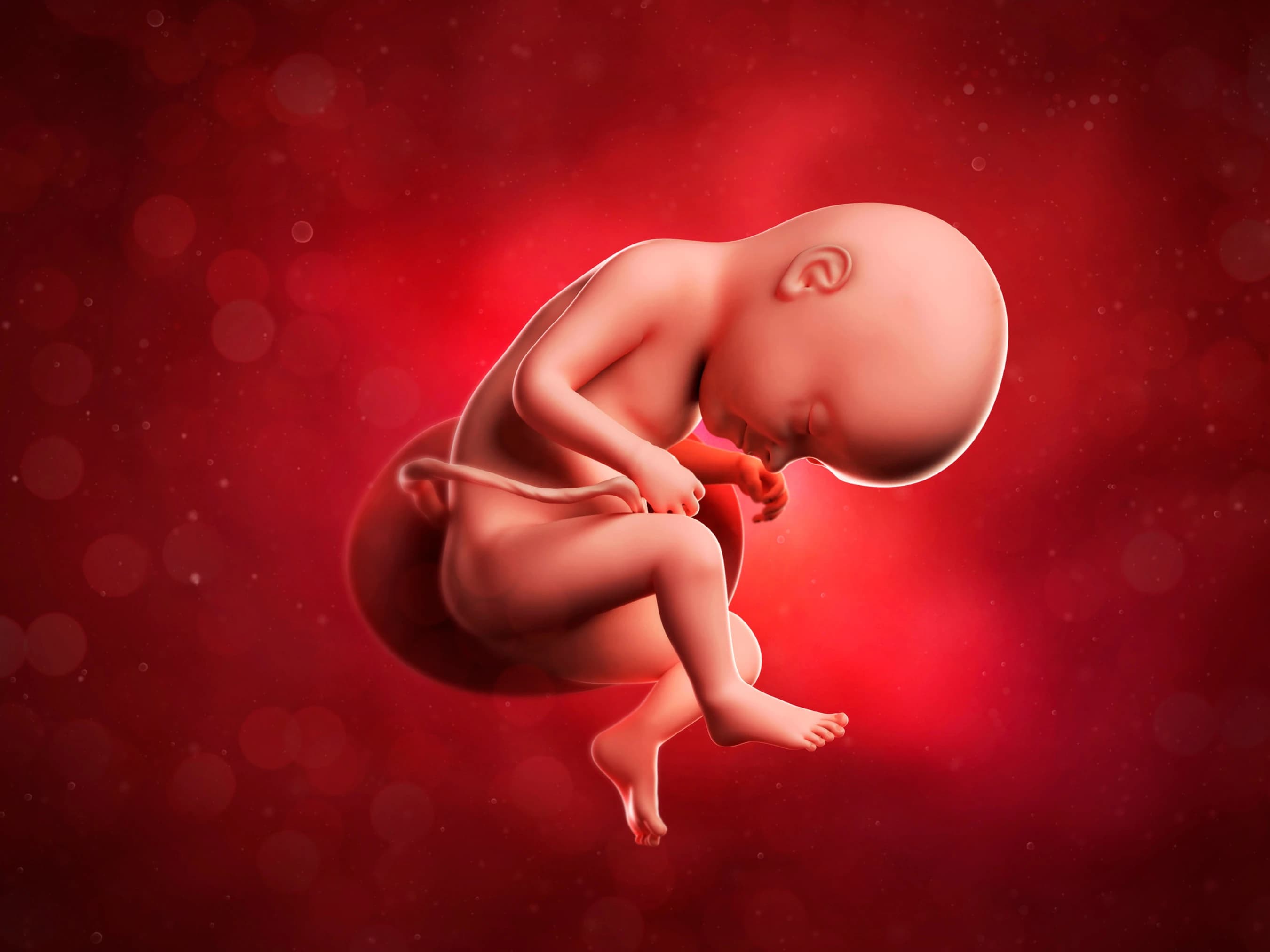
Written by Mindsmaking Medical Writer
Fact Checked by Mindsmaking Professionals
27th, July, 2025
At 33 weeks, feeling overwhelmed by tasks like preparing for maternity leave and setting up for the baby is normal. Remember to relax, ask for help, and focus on your well-being.
At 33 weeks pregnant, you're likely excitedly counting down the days until your baby arrives. It's normal to feel overwhelmed at this stage, as you might juggle several tasks. If you're still working, you probably have a lot to wrap up before starting maternity leave. You may also be busy buying baby gear and setting up a space for your little one at home.
While it can feel like a lot, remember to relax and focus on your well-being, don't hesitate to ask for help with your to-do list, taking care of yourself is important, too.
Key Takeaways
By week 32, your baby is likely in the head-down birth position and may descend further into your pelvis as delivery approaches, which can happen within the next six weeks.
Your baby measures 17.20 inches and weighs about 1918 grams, comparable to a pineapple.
A large belly, frequent bathroom trips, leg swelling, restlessness, and heartburn can all contribute to insomnia. Stress from preparing for the baby can also affect your sleep.
By 33 weeks, the fundal height (distance from the top of your pubic bone to the top of your uterus) is typically around 13 inches (33 centimetres).
Swelling can pressure nerves in your wrists and hands, causing carpal tunnel syndrome, which leads to numbness and tingling. Symptoms usually improve after childbirth as swelling decreases.
Amniotic fluid is usually clear and odourless. If you suspect your amniotic sac has broken, contact your healthcare provider immediately.
Aim to sleep on your side, especially the left side, as it improves blood flow and nutrient delivery to the placenta and can help reduce swelling.
Although your baby's birth is still a few weeks away, you and your partner should start discussing birth control options. Your partner might be focused on other aspects of pregnancy and may not have considered this yet,
Sorting clothes by size will help you easily find what you need as your baby grows.
Take a peek
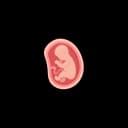
Weight gain
Your baby is gaining weight rapidly, about 220 grams each week, and by the time they are born, their weight will have almost doubled.
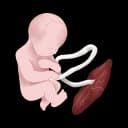
Flexible bones
Baby's bones are now properly developed. However, the bone plates in their skull must remain soft and flexible to make it easier for them to pass through the narrow birth canal.
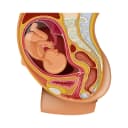
Antibody Transfer
In the last 12 weeks of pregnancy, you pass antibodies to your baby through the placenta. These antibodies help protect your baby from infections.
Baby Development at Week 33
At week 33, your baby continues to gain weight rapidly, about 220 grams each week. This means that the initially skinny and wrinkled appearance is gradually disappearing as the body becomes more filled out and rounded.
The skeleton is hardening, but the skull bones remain unfused to allow for flexibility during birth. This separation helps the skull adjust and slightly overlap as it travels through the birth canal. As a result, many babies are born with a cone-shaped head, which usually smooths out within a few days. The skull bones won't fully fuse until around two years of age.
By this time, your baby has probably moved into the birth position, with their head pointing downwards. The baby might also descend further into your pelvis as delivery approaches, which can happen any time within the next six weeks.
In the final 12 weeks of pregnancy, antibodies that help fight infections are passed from you to your baby through the placenta. Premature babies, however, are at a higher risk of infection because they have not had the full benefit of this antibody transfer.
Mindsmaking
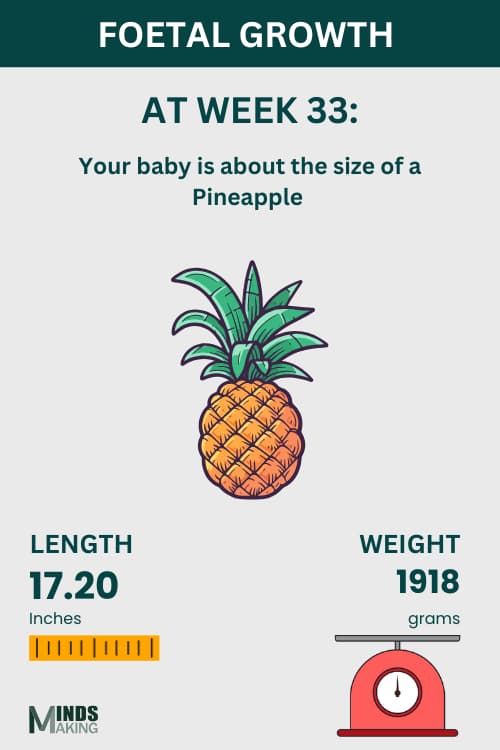
Body Changes at Week 33
By week 33, you should have gained between 22-28 pounds. You might find your libido has increased, which is normal. You can safely continue having sex until labour begins or your water breaks, though some adjustments might be needed for comfort.
Managing a large belly can make sleeping difficult. Frequent trips to the bathroom, leg swelling, restlessness, and heartburn can all contribute to insomnia. Additionally, stress from preparing for the baby might also affect your sleep.
It's crucial to ensure you get plenty of rest. To improve your sleep, avoid screens, intense exercise, and eating or drinking in the 1-2 hours before bed.
Make your bedtime routine relaxing, consider a warm bath or aromatherapy, ask your partner for a foot rub or back massage, and use extra pillows for comfort. If you still have trouble winding down, try listening to soothing music, drinking decaf tea, or reading a book.
Read This Next
No posts available
Baby Bump At Week 33
As your baby grows, your uterus expands to accommodate them. At 33 weeks of pregnancy, if your fundal height were measured, it would likely be around 13 inches (33 centimetres). Fundal height is the distance from the top of your pubic bone to the top of your uterus. However, every pregnancy is unique, so your bump might look different.
You might feel an increased pressure in your lower body as your baby moves lower into your pelvis. This usually happens around 33 weeks or the following weeks as your baby prepares for birth.
Pregnancy Symptoms at Week 33
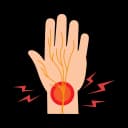
Carpal tunnel syndrome
Swelling can pressure the nerves in your wrists and hands, which might lead to carpal tunnel syndrome. This condition affects the bones and ligaments in the wrist and can cause symptoms such as numbness and tingling in the hands. Typically, these symptoms improve after childbirth as the swelling decreases. To manage discomfort, wearing wrist braces or splints may help, and your healthcare provider can offer further advice on relieving symptoms.

Trouble sleeping
Finding a comfortable position to sit or sleep becomes increasingly challenging as pregnancy progresses. If you're struggling with insomnia or getting less sleep, you're not alone, many women face this issue in the final months before childbirth. Physical discomfort, such as a large belly, added weight, stretching ligaments, and swelling, is a major cause of poor sleep during this time. A good pregnancy pillow can help alleviate discomfort and improve your sleep. Additionally, anxiety about the birth or other concerns can also interfere with your ability to rest. If you're feeling anxious, discuss it with your healthcare provider. They might recommend seeing a therapist or exploring other strategies to help you get the rest you need.

Back pain
As your baby grows, it can pressure your sciatic nerve, the largest nerve in your body, leading to back pain known as sciatica. To help relieve this discomfort, you might try taking warm baths, using a heating pad, or switching the side you sleep on. According to a study in the Journal of Orthopaedic and Sports Physical Therapy, physical therapy, including education and exercise, can help reduce back and pelvic pain before and after pregnancy. If you experience severe pain, contacting your doctor for further guidance is important.

Swollen labia
Swollen labia can be an unexpected but normal symptom during pregnancy. This swelling occurs due to increased blood flow, the added pressure from your growing uterus, and hormonal changes. While it might not always be painful, it can cause itching and soreness, and the skin of your labia may appear darker. Although you can't always prevent this swelling, you can manage discomfort by avoiding prolonged sitting. Wearing supportive undergarments with compression can also help control the swelling. If you're uncomfortable, applying a cold pack wrapped in a cloth to the area might relieve you.
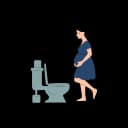
Frequent urination
As your baby grows, it might move lower into your pelvis, which can put extra pressure on your bladder. This often leads to frequent urination and may cause you to leak a little when you laugh, cough, or sneeze. While you can't fully prevent this, you can manage it by wearing a panty liner to stay dry from minor leaks. Not reducing your water intake is important, as staying hydrated is crucial. However, you can make things easier by using the bathroom before leaving the house or going to meetings to reduce the likelihood of needing to go urgently.
Pregnancy Concerns at Week 33
Most women do not experience a dramatic gush of amniotic fluid. Only about 1 in 10 women have this dramatic release, which often happens at home, sometimes while in bed. The amniotic fluid may leak slowly as a small trickle for many others. It's also possible for the amniotic sac to break or start leaking before labour begins(2).
It’s completely normal to feel unsure about whether you’re leaking amniotic fluid or urine, especially in the later stages of pregnancy. Amniotic fluid is typically clear, watery, and odourless. If you think your waters may have broken, it’s best to contact your midwife or maternity unit as soon as possible. While you’re waiting to be seen, try to avoid using tampons, having sex, or doing anything that could introduce bacteria into the vagina, as this may increase the risk of infection.
If the fluid is anything other than clear and odourless, such as greenish or foul-smelling, it might indicate an infection, so inform your doctor. Most doctors will assess both you and your baby promptly after the membrane rupture to monitor for infection risk, and they might decide to induce labour if necessary.
Health Tips for Pregnancy Week 33
Continue sleeping on your back
Since sleeping on your back or belly isn't an option, try to get comfortable on your side, especially your left side. Experts suggest this position because it helps maximise blood flow and nutrients to the placenta and reduces swelling in your feet, ankles, and hands. If you find yourself rolling onto your back or struggling with side sleeping, try tilting your hips and placing a pillow under one side for extra support.
Get vitamin D
Vitamin D, often called the "sunshine vitamin," is crucial for helping your baby's bones and teeth develop properly. It works with calcium to support this growth and is also important for healthy eyesight and skin. Everyone, including pregnant women, needs 600 international units of vitamin D daily. In summer, sunlight can usually provide enough vitamin D. It's also found in foods like fortified milk, breakfast cereals, and egg yolks. However, many people don't get enough vitamin D from these sources and might benefit from supplements. Before starting any new supplements or medications during pregnancy, it's important to consult your healthcare provider.
Increase your protein intake
At 33 weeks pregnant, your protein needs have increased to 71 grams per day, 25 grams more than before you were pregnant. Some experts suggest adding 10 grams of protein daily during the final trimester. Protein is essential for your pregnancy, including cell growth, blood production, and maintaining your energy levels. To meet these increased needs, incorporate protein-rich foods into your diet, such as egg whites, fish, lean meats, and tofu.
Add calcium to your diet
At this stage of pregnancy, your baby's bones are becoming harder and more developed, so it's crucial to maintain a diet rich in calcium to support this growth. Aim to include 3-4 servings of calcium-rich foods daily, such as milk, cheese, yoghurt, almonds, fish with edible bones, and green leafy vegetables. If you cannot consume cow's milk, consider fortified soy milk products as an alternative source of calcium.
Invest in pregnancy underpants
If you find traditional underwear uncomfortable as your belly grows, consider investing in pregnancy underwear. These are designed for your changing body, offering more comfort and support than regular options. They may not be as stylish as lingerie, but they'll be much more practical and comfortable over the next few weeks. They are designed to fit snugly over your expanding belly and stay in place, so you won't have to adjust them constantly.
Advice for Partners
Although your baby's birth is still a few weeks away, you and your partner need to start discussing birth control options for after delivery. Your partner might be focused on other aspects of pregnancy and may not have considered this yet, so it's helpful to bring it up intentionally. It's a good idea to research different methods together to choose an effective option that suits both of you.
Keep in mind that some birth control methods aren't suitable for women who are breastfeeding, and breastfeeding alone isn't a reliable form of birth control.
Pregnancy Checklist for Week 33
- Now is an excellent time to start preparing for breastfeeding. Consider attending a breastfeeding class, researching the topic, and purchasing items like breast pads and a breast pump if you think you might prefer expressing.
- Check your hospital's policy on rooming-in, which means keeping your baby with you in the same room 24/7 after birth. It can be beneficial for bonding and getting used to your baby's needs right from the start, but it's entirely your choice if you prefer not to do it.
- You probably have many hopes and dreams for your baby that you want to cherish and share. To ensure these thoughts aren't forgotten, consider writing a letter or a series of letters to your baby.
- Childproof your baby's nursery even if your little one won't be moving in immediately. It's never too early to prepare, and by getting a head start, you'll appreciate having one less thing to worry about during the busy early months.
- Consider sorting your baby's clothes by size to make it easier to find what you need, regardless of your baby's size at birth or as they grow.
Frequently Asked Questions
How big is my baby at week 33?
At week thirty-three, your baby is about 17.20 inches in length. This roughly equals the size of a large pineapple and weighs about 1918 grams.
What position is my baby in at 33 weeks pregnant?
At 33 weeks, your baby is likely settling into the head-down position, preparing for birth. This means you might notice that your belly seems to have "dropped" lower into your pelvis. This dropping is a sign that the baby is getting ready for delivery. However, some babies don't move into this position until closer to your due date, so if you haven't noticed this change, there's no need to worry.
What should I not do at 33 weeks pregnant?
At 33 weeks pregnant and throughout your pregnancy, it's important to maintain a healthy lifestyle. This means eating a balanced diet, staying active with appropriate exercise, and avoiding harmful habits like smoking and drinking alcohol. Your growing belly might make you feel tired and uncomfortable in the third trimester. It's important to listen to your body, avoid heavy lifting and strenuous activities to prevent overexertion and keep yourself and your baby safe.
What can I do about frequent urination at 33 weeks pregnant?
Frequent urination during pregnancy, while not harmful, can be uncomfortable and disruptive. To manage this symptom, plan your bathroom trips ahead of time to prevent sudden urges and emergencies. Additionally, doing pelvic floor strengthening exercises can help support your bladder and potentially reduce the frequency of urination. These strategies can make dealing with this common pregnancy symptom more manageable.
Was this article helpful?
How many stars are you giving this article?
Leave a comment
Your email address will not be published.
